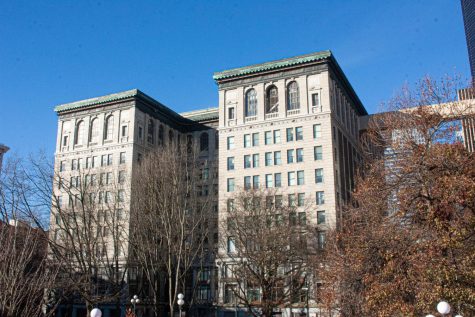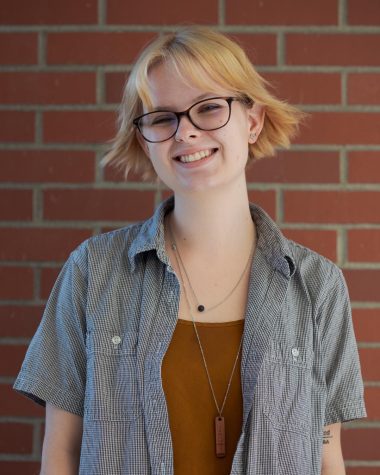Setting the stage
Court determines SPU cannot discriminate on basis of sexual orientation when hiring
January 12, 2022

On Dec. 17, Judge Sandra Widlan of the King County Supreme Court ruled that Seattle Pacific University cannot discriminate on the basis of sexual orientation when hiring in the nursing department.
Jeaux Rinedahl, a former adjunct nursing professor at SPU, applied for a full-time position and was turned down for the job. In early 2021, he decided to sue the university on the grounds that he was denied the job because of his sexual orientation.
Widlan’s summary judgment ruling, while not the final outcome of the lawsuit, will have an impact on how the trial goes in the future.
A summary judgment takes place when it is believed that all of the facts are in front of the judge and there is no more information to be obtained. It can allow certain arguments to be settled outside of a trial and can clarify the meaning of laws.
In this specific case, Rinedahl’s team moved for a summary judgment that SPU engaged in sexual orientation discrimination and that their affirmitive defenses to liability (the evidence presented in their defense) did not apply to Rinedahl. While the court did not approve a summary judgement that SPU engaged in sexual orientation discrimination, they did grant summary judgment for many of the affirmative defenses, including one on the ministerial exception.
The ministerial exception allows religious institutions to be exempt from anti-discrimination laws when hiring ministers. This means that they can choose to not hire someone who is openly gay and will be ministering to students. What is not clear about this is who counts as a minister.
SPU made the argument that all professors at the University are ministers, and therefore they can hold all their staff to their sexual orientation policy. This did not hold up in court however, and it was decided that a regular faculty position in the nursing department is not a ministerial position.
Rinedahl and his attorney Daniel Kalish were not surprised by this ruling.
“We absolutely expected this decision,” said Kalish. “The law is clear that nursing faculty are not “ministers” of SPU.”
Rinedahl expressed his excitement about the ruling.
“My reaction was incredible relief and happiness because the court held that SPU has no right to discriminate against those in a same-sex marriage in the hiring of nursing faculty,” said Rinedahl. “I believed this was true, but hearing it from a court confirmed my belief.”
Nick Glancy, assistant vice president for risk management and university counsel at SPU, wrote an update on the legal proceedings in the Jan. 10 Faculty/Staff Bulletin.
“The University recognizes that Rinedahl’s lawsuit involves issues of faith upon which Christians of goodwill — including in the University community — disagree, but the University also believes that Christian institutions should be able to work out these issues within their own communities, consistent with the free exercise of religion provided by the U.S. Constitution,” said Glancy.
While the decision is a relief for Rinedahl, his case is not over yet and it will be several months before a final ruling is made.
“The court held that SPU cannot discriminate against Professor Rinedahl because he was in a same-sex marriage,” said Kalish. “The issue at trial then is only whether Rinedahl being in a same-sex marriage was a substantial factor in the decision not to hire him.”
The university isn’t as confident that the summary judgment is going to be impactful on the final trial.
“The judge stated in part that she was constrained by rule as a result of the Washington State Supreme Court’s 2021 decision in Woods v. Seattle’s Union Gospel Mission,” said Glancy.
The Woods decision has been appealed to the US Supreme Court, and a change in that decision would change the outcome of the Dec. 17 summary judgment.
Rinedahl hopes that the results of the summary judgment and the lawsuit will create change for himself and at the university.
“I want to become a regular faculty member at SPU in the nursing department. I loved the students, my co-workers, and the curriculum,” said Rinedahl. “As to the University, I would hope that they would stop discriminating against those in a same-sex marriage.”
First-year social justice major Zoe Thomas agrees with the court’s decision.
“It separates sexuality from a classroom position,” said Thomas. “Who you like doesn’t influence how well you can teach.”
Third-year psychology major Sydney Groves, while happy about the decision, isn’t sure if it will create much change at SPU.
“I would not be surprised to see discriminatory hiring practices continue using loopholes and excuses,” said Groves. “I would doubt that we will see an increase in queer professors at SPU, although I would be ecstatic to be wrong.”
Yet Groves is still hopeful that this will be the beginning of SPU becoming more inclusive.
“I am anxious to see where this takes us, and hopeful that this ruling is the first of many steps taken that will make SPU a more accepting, inclusive, and safe community for all people,” said Groves.
Rinedahl is grateful for the SPU community and the support he has received.
“I am so honored and humbled, for the incredible support that so many of the students, staff, and faculty have shown me through this process and lawsuit,” said Rinedahl.
The trial, which will determine whether or not SPU did not hire Rinedahl because of his sexuality, will take place on June 13.


























































































